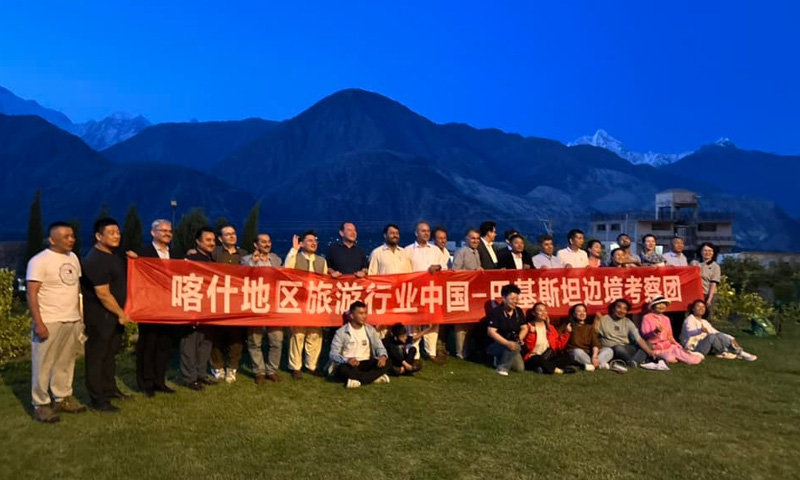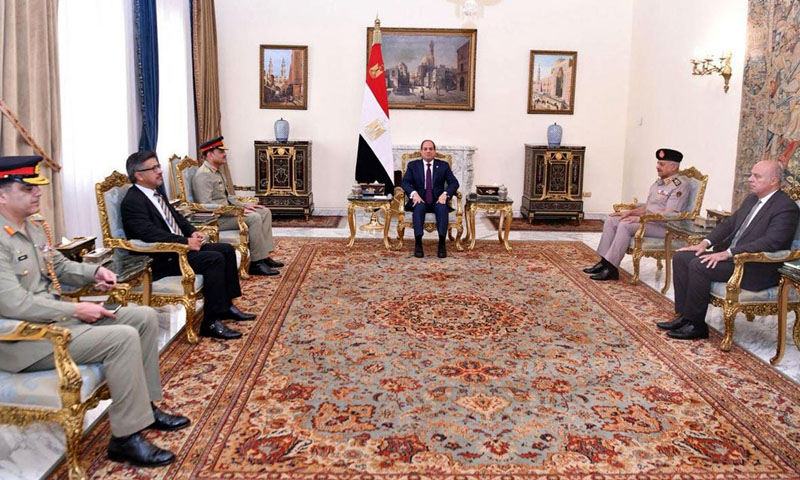- Web Desk
- Today
Kashgar delegation explores tourism potential in G-B
-
- Tanveer Abbas Web Desk
- Jun 28, 2024

GILGIT: A delegation from the Kashgar Xinjiang Tour Operators Association wound up their five-day visit to Gilgit-Baltistan, aimed at enhancing cross-border tourism and cultural exchange between China and Pakistan.
The visit marked the first outbound tourism team from Kashgar invited by the Travel Agents Association of Pakistan (TAAP). The 18-member delegation of tourism industry insiders from Kashgar, China’s Xinjiang province, traveled to the Gilgit-Baltistan region via the Khunjerab Pass.
The initiative is part of a broader effort by the Chinese government to promote tourism activities between the two nations, coinciding with the recent reopening of the Pakistan-China border.
During their stay, the delegation engaged in discussions with their counterparts from TAAP and other tourism enterprises in Pakistan. These interactions are expected to lay a solid foundation for the regular promotion of China-Pakistan entry-exit tourism market cooperation.
To commemorate the delegation’s arrival, the Gilgit-Baltistan Association of Tour Operators (GBATO) organised an event in Gilgit. G-B Tourism Minister Ghulam Muhammad pledged the government’s full support in strengthening bilateral tourism relations and extended an invitation for future visits.
Speaking to HUM News English, GBATO General Secretary Anwar Ali Khan elaborated on the purpose of the visit, which included inspecting hotels, roads, visas, and immigration facilities for tourists. Khan highlighted that the Chinese government has listed Pakistan as a preferred tourist destination and expressed a keen interest in bringing Chinese tourists to Pakistan, particularly to the picturesque region of Gilgit-Baltistan.
Also read: Two ecotourism sites unveiled in Gilgit-Baltistan
Khan said the delegation further suggested the introduction of visa-on-arrival facilities for tour operators, enabling Chinese tourists visiting Tashqurghan in Xinjiang to extend their travel to Hunza Valley for two days. The facility, according to the delegation, could bring 2,000 to 3,000 Chinese tourists to the region, thereby boosting economic activity and fostering cross-cultural cooperation and new business opportunities.
The delegation also advocated for an entry visa-on-arrival policy at the Sost immigration centre. Minister Ghulam Muhammad assured the delegation that he would address this issue with the federal government to facilitate smoother entry for Chinese tourists. The visiting delegation termed the Silk Route as a road to friendship and binding hearts, symbolizing the strong historical and cultural ties between China and Pakistan.
However, Anwar regretted that despite their efforts to bring international tourism to the region, government inaction and lack of priority to the industry are hindering tourism promotion. He emphasized that proactive government support is crucial for unlocking the region’s full tourism potential and ensuring sustained economic growth through increased tourist inflow.





